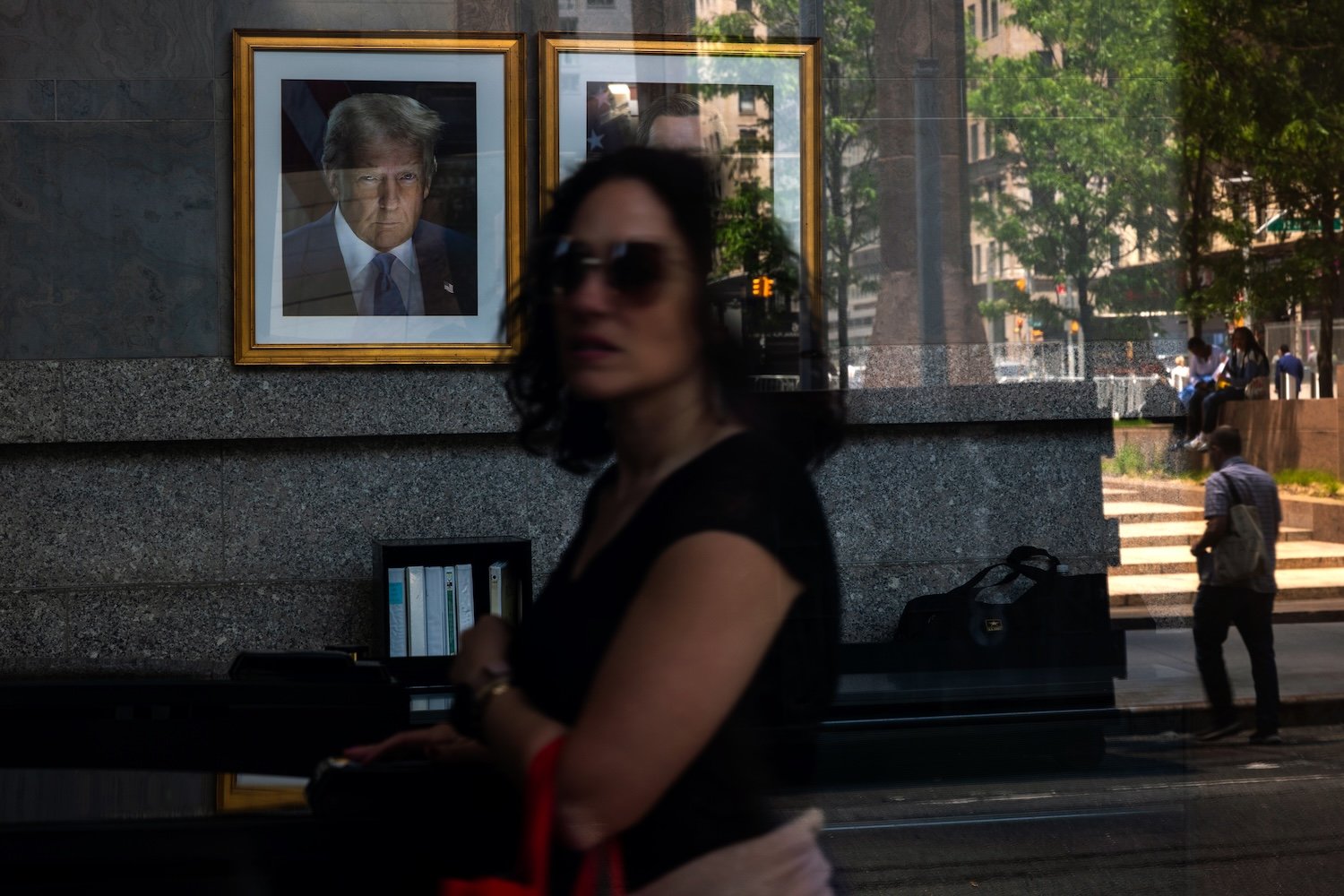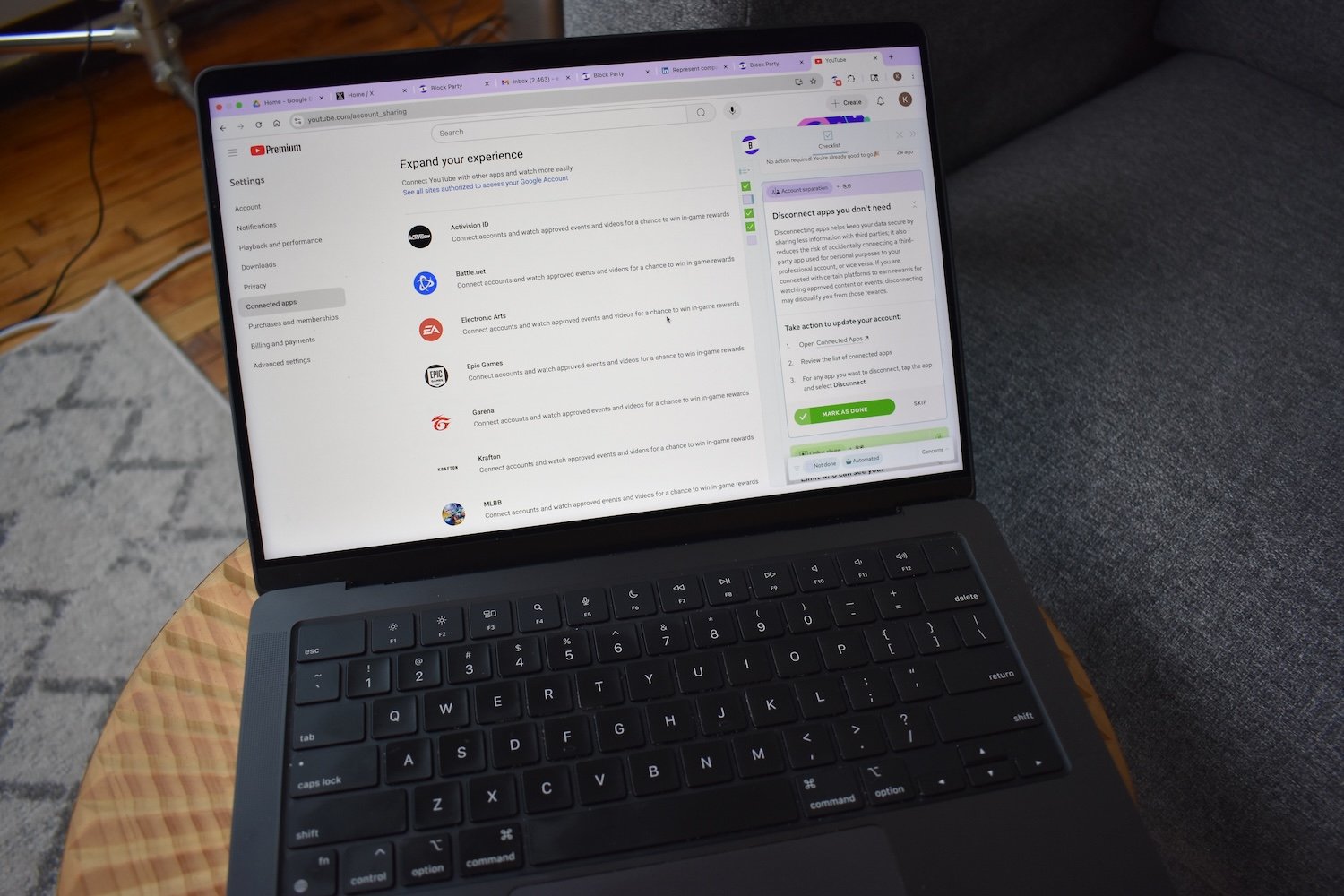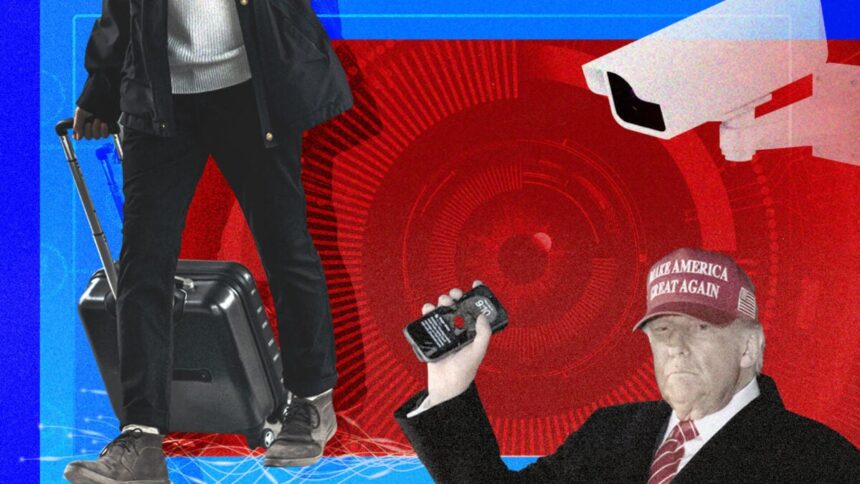Agents of the Trump administration are increasingly using social media posts to crack down on immigrants, tourists, and even some U.S. citizens. Last month, a leaked document showed the State Department had crafted a new standard for reviewing the social media accounts of any foreign students planning to attend or even visit Harvard University. Legal immigrants may have benefits denied based on social media activity, and people expressing opinions or acting contrary to Trump are being detained at airports. Whether you’re a U.S. citizen or not, it’s time you reexamine how much of yourself you’re willing to show publicly online.
Amid the ongoing travel turmoil that’s made several countries institute warnings to foreign citizens planning trips to the U.S., I was looking for ways to make it more difficult for governments to use my social posts against me. That’s when I was invited to use Block Party. It’s not, by its nature, a politically charged app. With a $25 annual subscription, Block Party uses a browser plugin to help rein in your privacy settings on your various social media accounts with a simple checklist and easy-to-follow, step-by-step guides. Privatizing your social media accounts helps keep big tech from building data profiles based on your activity, which it then uses for targeted advertising, but it may not be enough to completely deter a visit from Customs and Border Protection as you muscle through airport security after coming to the States. [Editor’s note: Getting thrown into another bin for targeted advertising isn’t great either, but it’s better than getting thrown into Guantanamo.] At the very least, it may make the jobs of federal agencies—or anybody looking for dirt on you based on your online activity—a little harder. For the time being, that might be enough to help you avoid being held up by U.S. officials for hours in an airport.
Trump Widens the Targets of Social Media Scrutiny
You can simply delete your profiles, but as somebody who still needs to remain active on social media, Block Party is one of the better options I’ve personally used to get into the weeds of my accounts’ esoteric privacy settings. It even helps you find settings in some apps to keep AI from scraping your posts. Still, changing all your settings may not be enough to avoid all scrutiny. According to a Politico report on the leaked State Department document, the U.S. government imagines foreign students’ lack of a social presence or privatized social media “may be reflective of evasiveness and call into question the applicant’s credibility.”
The Trump administration may ascribe this same standard to U.S. citizens. Already, there are concerning examples of agents targeting supposed Trump opponents. Left-wing influencer Hasan Piker said in May that he was detained and questioned for hours by Homeland Security after he came back to Chicago from France. In April, immigration agents detained Michigan-based attorney Amir Makled at an airport for more than an hour as he returned home from the Dominican Republic. The attorney was representing Columbia University students who had protested against the war in Palestine. Makled said feds requested he hand over his phone, and after 90 minutes of questioning, he eventually complied.
The situation is growing more constrained for non-citizens traveling to the U.S. Every individual has to decide for themselves what precautions they need to take when traveling as a citizen or non-citizen alike. Sophia Cope, the senior staff attorney at the Electronic Frontier Foundation, told Gizmodo it’s not an easy decision, and some people planning to visit the U.S. may be better off choosing a different destination. However, despite U.S. Secretary of State Marco Rubio’s proclamation that privatizing social media was somehow an indication of “evasiveness,” it’s still a good idea to privatize your socials before crossing the border to the U.S. And it’s not just protesters who need to think long and hard about what thoughts of theirs are shared online. Nonprofit and government staff now have to consider whether their public presence necessitates drastic culling of their online profiles.
“We’ve definitely been seeing an uptick in interest given the activities of the government recently,” Tracy Chou, the founder and CEO of Block Party, told Gizmodo in a video interview. After Trump’s inauguration, she said she’s received interest from both current and former government workers from multiple federal agencies, afraid their previously innocuous social media posts could be used as ammunition for right-wing groups. Government workers weren’t just trying to avoid the eyes of Trump and DOGE. Chou gave an example of people who worked in the Department of Justice’s civil rights division who were trying to avoid attacks from right-wing groups online.
Some Apps Make It Easier to Avoid Social Media Scrutiny

You can find a loose gaggle of tutorials online for turning on social media privacy settings, but even an experienced user will be surprised by just how many settings there are to limit. You may also want to look into subscriptions such as DeleteMe or Kanary, which work to eliminate information data brokers have on you and remove data from some websites. Block Party is more concerned with restricting the data big tech companies can garner from your social accounts. Privacy settings for most apps are arcane—often deliberately so—and even if you’re trying to privatize an account, you can still miss something.
Block Party currently works with X, LinkedIn, Facebook, Venmo, Instagram, Reddit, Strava, YouTube, Bluesky, and Google. Additionally, Block Party will only impact the mobile versions of TikTok and Snapchat. Chou said her team is planning to support more apps in the future. The app operates as a browser plugin that offers a checklist for your social accounts. Some settings can be done for you with the tap of a button, but various settings will take some attention on your part. On LinkedIn, Block Party can automatically turn off settings to “represent company,” a sneaky setting used for sponsored ads about your employer. If I want to change the number of apps connected to my YouTube account, I have to click a link through the app and disable them manually, then mark the task as “done.”
Even using Block Party, the process of tuning all your socials is time-consuming. After you’re done, you may realize how many features of these apps depend on your private data. Block Party recommends you change YouTube settings to limit viewing history. Suddenly, I can’t see which videos I’ve watched, making it harder to return to a YouTube essay I paused before going to sleep. This is the trade-off for privacy. You simply won’t be able to use your apps in the same ways you used to.
There Is No Panacea for Privacy

Nina Jankowicz, the cofounder of The American Sunlight Project, which advocates against online disinformation, said she has started to advise people to lock down their social media not just for the sake of avoiding targeted ads, but to keep from being targeted by the government. She said she offers Block Party free to staff, but even that may not be enough in this age, where her activities as an advocate are receiving more and more scrutiny. Jankowicz said she started bringing a burner cell phone when she travels through and to the U.S.
Beyond massaging your social accounts, travelers need to start considering device security. Turning off biometric log-in when you travel is a good start, as experts say law enforcement has less legal liability to unlock your device if they flash your Face ID at your mug. You should avoid saving WhatsApp or Messenger chats to the cloud in case government agents manage to bypass phone security. VPNs, which help hide your IP address and keep you anonymous when online, are also good to have on hand. The fact of the matter is, U.S. officials have the legal ability to detain people at the airport, but as Cope stressed, the U.S. is not legally allowed to keep citizens from entering the U.S. without probable cause. Non-violent political opinions posted to social media still don’t meet grounds for an arrest just because Trump is in office. At the same time, Trump’s administration has continued to ignore court decrees, and his flaunting of the law may turn on American citizens as well. For now, it’s best you know your rights. Refusing to hand over a phone to officers could delay you, but you’re only legally required to establish your identity, not to share your phone with anybody. Again, knowing your rights can still lead to delays.
“If there’s anything remotely controversial, I would delete that post, privatize the account, or even shut down the account,” Cope said. “I want to emphasize again it’s each individual person’s choice, but I think for me, I’d rather not have the government have this particular data point or set of data points about me.”
The U.S. already knows what kind of chilling effect this abuse of social media has had on protest efforts. When I asked Jankowicz whether privatizing your social media can make it harder to organize, she responded bluntly: ”Yes.”
“Researchers are a lot more reticent to be on things like Signal group chats or on email chains and message boards,” she said. “The toll it takes on attempting to muster a collaborative response on anything that’s happening to the community is really difficult.”
Privatizing your social media can’t be a panacea for your travel anxieties, especially if you still want to use these apps to communicate with friends or organize for causes you care about. The best it can do is make a government operator’s job harder, and since there are so many accounts to monitor, you may slip through the dragnet. As time goes on, Trump will rely more on technology from firms like Palantir to compile a wider database on every citizen based on government data, according to a recent report from The New York Times. Whether you use apps like DeleteMe and Block Party in tandem or you go out and prune your posts and public persona, get ready for a far more constrained online existence.
Read the full article here











